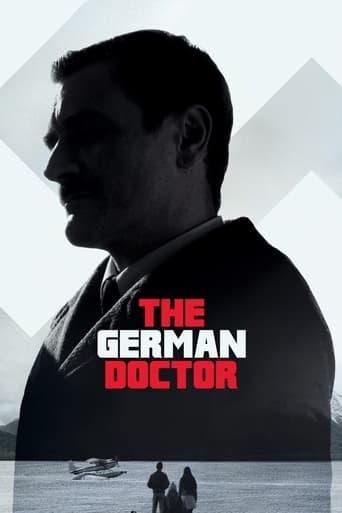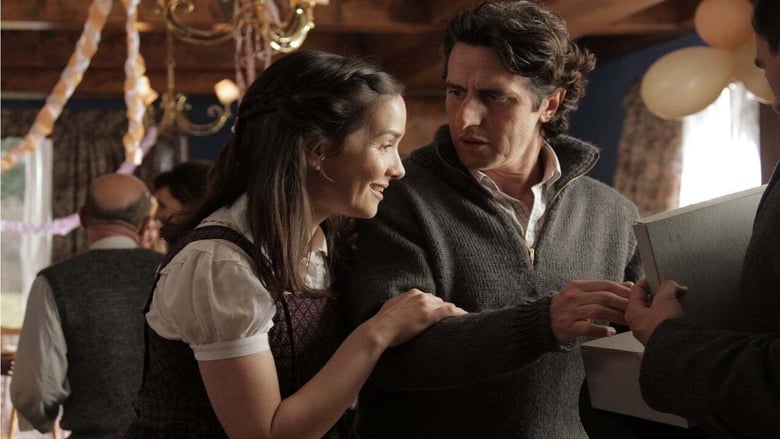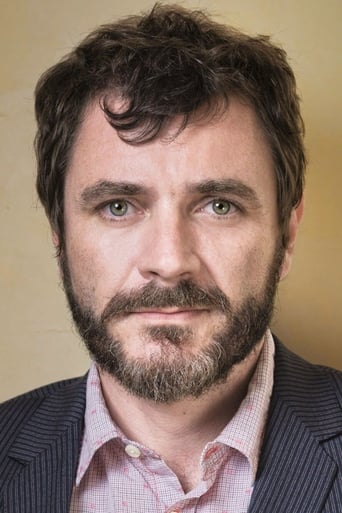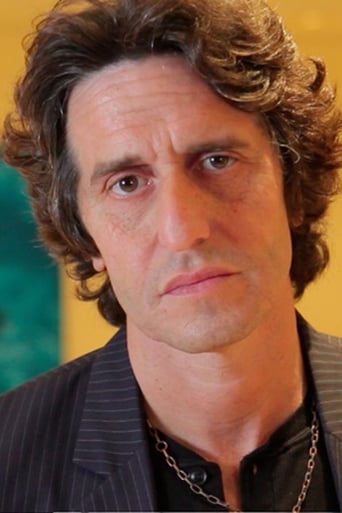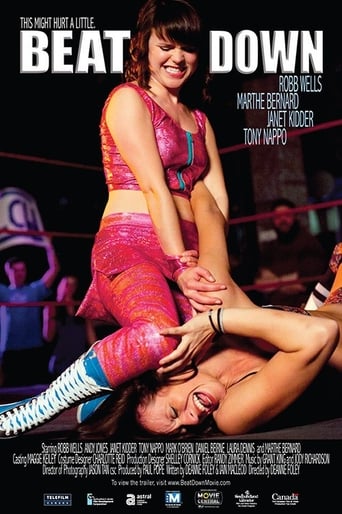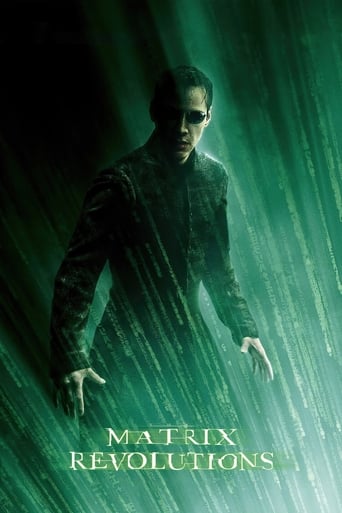The German Doctor (2014)
Patagonia, 1960. A German doctor meets an Argentinean family and follows them to a town where the family will be starting a new life. The family welcomes the doctor into their home and entrust their young daughter to his care, not knowing that he is one of the most dangerous criminals in the world.
Watch Trailer
Cast
Similar titles

Reviews
It’s fine. It's literally the definition of a fine movie. You’ve seen it before, you know every beat and outcome before the characters even do. Only question is how much escapism you’re looking for.
Not sure how, but this is easily one of the best movies all summer. Multiple levels of funny, never takes itself seriously, super colorful, and creative.
Exactly the movie you think it is, but not the movie you want it to be.
Each character in this movie — down to the smallest one — is an individual rather than a type, prone to spontaneous changes of mood and sometimes amusing outbursts of pettiness or ill humor.
'The German Doctor' is a quiet movie, but with a dark undertone, telling of the sojourn of escaped Nazi doctor Josef Mengele in southern Argentina (in fact, the plot is fiction, but also a surmisable version of the truth). What I liked about this film is that it inclines us to see Mengele as monstrously wrong-headed, but still in some senses still human, while a late revelation still shocks us by revealing the true awfulness of this man. Also, the Patagonian scenery is beautiful and the use of creepy mechanical dolls as a visual metaphor for how Mengele sees humans is also nicely done. But we know that Mengele got away in the end, and the film also tells us (by dint of a voice over, delivered with hindsight) that the girl we see him experiment with also survives. And thus there's just not so much dramatic tension, and the movie is rather slow to advance beyond its premise: most of the impact comes at the end.
Filmed in the rolling landscapes of Patagonia, Argentina, WAKOLDA is a truly harrowing story of the Nazi doctor who continued to practice his experiments well after the Second World War had ended.In exile and among a group of Nazi sympathizers, Josef Mengele (Àlex Brendemühl) lives under an assumed name, and ingratiates himself with a family running a hotel. Befriending the young daughter Lilith (Florencia Bado) he claims to be able to increase her growth and thereby prevent her from being teased at school for being the smallest in the class. She readily agrees; as do her parents. This provides the pretext for Mengele to continue his macabre researches that actually do more harm than good.Lucía Puenzo's film contrasts the domestic world of Lilith with the world of the Nazi sympathizers congregating in a local German school. They still practice the salute, and forge a regimented atmosphere guaranteed to impose order on the unwilling learners. Lilith is sent to the school, in the hope of receiving a good education - although remaining largely unaffected by Nazi ideology, she is made painfully aware of her lack of height, which only encourages her to seek Mengele's help even more.Set in 1960, WAKOLDA draws a direct parallel between Mengele's work and the doll-manufacturing practiced by Lilith's father Enzo (Diego Peretti). At first Enzo makes all the toys himself; but with Mengele's investment the venture is transformed into a small cottage industry, where all the dolls' faces are identical and they are given tiny mechanized beating hearts. We are made painfully aware that Mengele treats humanity with just the same indifference as the factory workers treat their dolls - as material for experimentation rather than living breathing personae.The film maintains a cool, detached tone throughout; although Israeli agents pursue Mengele with the same enthusiasm as with other ex- Nazis (notably Adolf Eichmann), they fail to capture him. But this is not really the film's concern: director Puenzo is far more concerned with Mengele's terrible plausibility as a practicing doctor taking unwitting victims into his confidence and subsequently abusing them.
"The German Doctor" is an Argentinean film based on real events. Interestingly, the man who wrote the novel, Lucía Puenzo, also wrote the screenplay, produced AND directed this movie. It's also really worth your time, as Puenzo shows a very deft hand helming this interesting picture.The story is set in Argentina in 1960*. A family has decided to move into the Patagonian countryside and open up a bed guesthouse. Their first customer is a handsome and genial German man who is very easy to like. The daughter in particular spends a lot of time with this man. This is because he is a doctor and claims he might be able to help the girl. After all, although she's 12, she appears to be about 9 years- old and the kids at school make fun of her because of this. With the mother's permission, the good doctor tests out his new formula which might help her to grow. They have no idea exactly what he's giving her, but the formula does seem to help. In addition, since the doctor is such a nice man, he offers to help the pregnant mother who soon learns from the doctor that she's going to have twins. Unfortunately, it turns out that the doctor isn't who he says he is...he's Joseph Mengele-- the notoriously evil Nazi who worked at Auschwitz. And why was he so notorious? Because he performed all sorts of ungodly experiments on people...and his subjects of choice were twins. And, according to the film, his wicked experiments continued long after the war had ended.While I would love to tell you that the film has a happy ending**, it didn't. After all, this psychopath was one of the most important Nazi war criminals to escape prosecution. So, if you are the type that expects or needs a happy ending, then you just might want to pick another movie. Nevertheless, it is exquisitely crafted and not excessively sad nor graphic--at least in regard to what you see and hear during the course of the film. It's much more thought- provoking than anything else--and a movie that is well worth your time.*Although I loved the film, the attention to period detail was poor. The film was set in 1960 but many of the cars are late 1960s vintage. **My daughter saw this in the theater and was shocked to hear several people complain about the film because it did not have a happy ending. I hate to think that they wanted them to change history and have the doctor captured and shot. While satisfying, this just isn't what happened to the guy!
This is one of the best movies I've seen in quite a while. Although the Argentinian family in the movie is fictitious, there is much truth about the movie. It takes place in and around the city of San Carlos de Bariloche (aka simply Bariloche) in Argentinian Patagonia.Bariloche had a large contingent of German immigrants long before World War II and it was a recognized haven for Nazi war criminals after the War. It is also one of the most beautiful parts of Argentina known for its snow-capped mountains and Lake Nahuel Huapi, all of which are splendidly shown in the movie. There was even a rumor floating around at one time that Adolf Hitler and his mistress/wife, Eva Braun, lived there after the War.The Angel of Death is of course the infamous Dr. Josef Mengele (1911-1979?), chief SS staff physician at the notorious Auschwitz-Birkenau labor/death camp from early 1943 to early 1945. What makes Mengele so heinous were his genetic experiments, particularly on twins and dwarfs. He was also involved in making the decision at the camp as to who would be used for labor and who would be sent to the gas chamber and certain death. Reading even a bit about his life will quickly convince you he was a true psychopath.The movie opens in 1960. Mengele (Àlex Brendemühl)―known by his pseudonym Helmut Gregor―is traveling to Bariloche along a lone, unpaved road where he encounters an Argentinian family: Enzo (Diego Peretti), Eva (Natalia Oreiro), Lilith (Florencia Bado), and their teenage son. Gregor/Mengele notices that Lilith, twelve, is very short for her age. Although he is very friendly with her, you can see the wheels turning in his head that she would make an excellent subject for one of his experiments. BTW Bado in her first film role does an outstanding job portraying the intelligent, but vulnerable, Lilith. Even at this early stage Enzo subconsciously picks up on Gregor/Mengele as a threat to his family, but since he has nothing overt to go on, lets Gregor/Mengele follow him on the unpaved road toward Bariloche. Eva is of German descent but born in Argentina. She has learned German at a private school in Bariloche run by Germans for German Argentinians. The family plans to restore a resort hotel and Gregor/Mengele volunteers to become their first paying guest. Soon he is injecting hormones into Lilith with Eva's consent in an attempt to make her grow. This is despite Enzo warning Eva that she is specifically not to let Gregor/Mengele perform any experiments on Lilith without his consent. Eva is also pregnant with twins and soon lets Gregor/Mengele begin experimenting with her preborn children. Lilith becomes a student at the private school in Bariloche that her mother attended. She is befriended by a young photographer there, Nora Eldoc (Elena Roger). Eldoc recognizes Gregor as Mengele, confronts him, and shows the evidence of his experiments on Lilith and the twins. Eldoc has also reported his whereabouts, making it necessary for him to flee Argentina. For this he tells her in effect she will soon be murdered.The story ends with Eva realizing what a horrible mistake she has made by allowing Gregor/Mengele to treat her while pregnant and to treat Lilith. One of her twins is born with bad health from Gregor/Mengele's genetic/hormonal experimentation and Lilith may suffer from the injection of too much growth hormone for the rest of her life. At the very end we see a small seaplane flying off to Paraguay carrying Gregor/Mengele escaping the long arm of Mossad. The next day Eldoc is discovered in a cave in the mountains, dead, just as Gregor/Mengele has insinuated.Nora Eldoc was a real person who was an undercover Israeli agent in Bariloche who was murdered as described above. Although fictitious, the movie is supported by a solid bed of facts. There are subtleties in the movie I have neglected in order to keep this review manageable―such as the significance of the porcelain dolls, Gregor/Mengele's detailed notes of his experiments and his fascination with measurement, the abject respect many of the German Argentinians display towards Gregor/Mengele, and Eva's conflicts with Enzo. The acting's outstanding as is the cinematography. Written and directed by Lucía Puenzo.This movie ought to win some awards. I saw it at Laemmle's Playhouse 7 in Pasadena, California USA. The theater was not very crowded. Unfortunately this movie will probably not attract a large audience. This is a real shame because it really should be seen. And it should be seen because Mengele was a monster in reality and he truly existed. And he truly and habitually did the things that the movie depicts him doing. That such a person can really exist should be a lot more frightening than vampires and zombies.10/10
